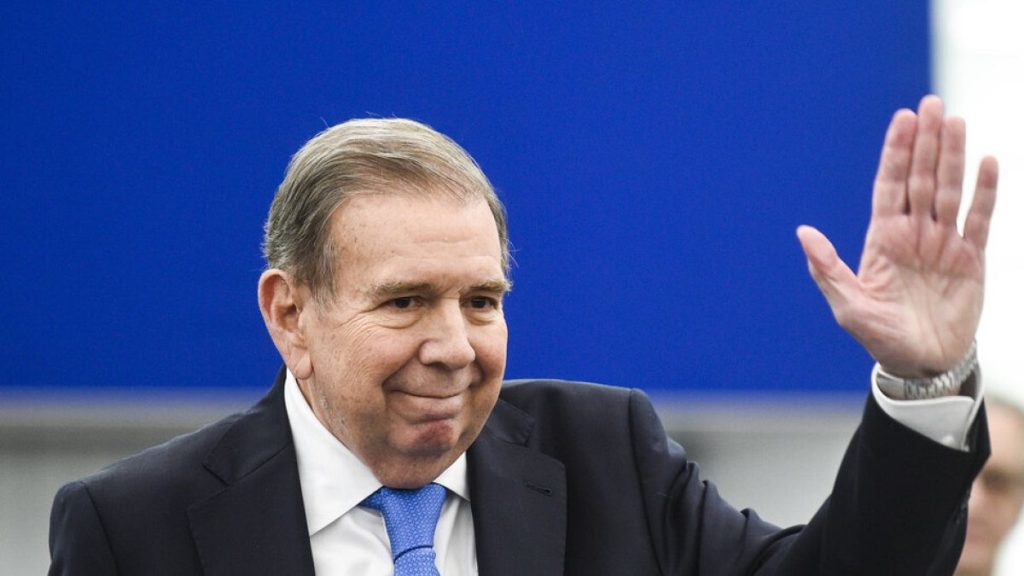The political landscape of Venezuela remains fraught with tension and uncertainty as self-proclaimed president-elect Edmundo González navigates international waters seeking support for his claim, while simultaneously grappling with the personal trauma of his son-in-law’s alleged kidnapping. The incident, which took place in Caracas amidst heightened security measures surrounding Nicolás Maduro’s upcoming inauguration, throws into sharp relief the ongoing power struggle and the precarious security situation within the country. González, currently in exile, accuses Maduro’s regime of orchestrating the abduction, labeling it a politically motivated forced disappearance. This accusation further complicates an already intricate political quagmire, adding another layer of complexity to the ongoing dispute over the legitimacy of the July presidential election.
The circumstances surrounding the kidnapping remain somewhat unclear, with conflicting reports emerging from various sources. While González initially described the perpetrators as “hooded men, dressed in black,” his daughter clarified that only her husband, Rafael Tudares, was taken, while the children were left unharmed. The lack of concrete details and the absence of any claim of responsibility fuel speculation and heighten the sense of unease. The incident underscores the vulnerability of individuals connected to political figures, especially in a context of deep political polarization and alleged state-sponsored repression. The timing of the kidnapping, coinciding with Maduro’s inauguration and González’s international tour, raises further questions about its motivations and potential implications.
González, a retired diplomat and relatively new entrant to the political scene, was thrust into the spotlight as a last-minute replacement candidate for the opposition. His subsequent claim to the presidency, though recognized by some international actors, notably the United States, remains highly contested within Venezuela. He embarked on his international tour with the expressed aim of garnering support for his cause and ultimately removing Maduro from power. The kidnapping of his son-in-law introduces a deeply personal element into this political drama, highlighting the human cost of the ongoing power struggle and potentially adding further fuel to González’s resolve.
The incident also casts a shadow over the already controversial inauguration of Nicolás Maduro for a third term. Maduro’s victory in the July election was widely disputed by the opposition and international observers, with allegations of irregularities and voter suppression. The heightened security presence in Caracas, ostensibly implemented to ensure a smooth inauguration, now takes on a more ominous tone in the wake of the kidnapping. The opposition views the increased security as a further demonstration of Maduro’s authoritarian grip on power, while Maduro’s supporters claim it is necessary to maintain order and prevent unrest.
The kidnapping of Rafael Tudares adds a new dimension to the intricate web of political tensions and uncertainties that have long characterized Venezuela. It not only highlights the personal risks associated with political involvement in the country but also intensifies the already polarized political climate. The incident raises serious questions about the rule of law and the safety of citizens, particularly those perceived as opposition figures or their relatives. It remains to be seen how this incident will impact the ongoing political struggle and whether it will galvanize further international pressure on the Maduro regime.
The future of Venezuela remains uncertain. González’s international efforts to gain recognition and support for his claim to the presidency face significant hurdles. Maduro, firmly entrenched in power and supported by the military, shows no signs of relinquishing control. The kidnapping of Tudares underscores the fragility of the situation and the potential for further escalation. It remains to be seen whether dialogue and negotiation can pave the way for a peaceful resolution or whether the country will continue to be gripped by political instability and violence. The international community faces a difficult challenge in navigating this complex situation and contributing to a solution that respects the will of the Venezuelan people and ensures their safety and well-being.














